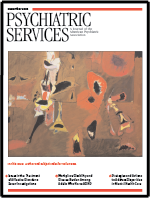The Position
A couple sprung from the 1960s, content lovers still enjoying discovering their sex life despite being parents of four children, have written a book with "nerve and arrogance" about their favorite sexual positions, complete with explicit drawings of the pair making love. Does the title of this novel refer solely to a sexual position, the product of a couple's erotic imagination? Or is it a psychological position on what to reveal to children about their parents' sexuality? Or a romantic position on sexual politics in the 1970s, with an analysis of its consequences for the next generation? Or a description of the erosion of love?
Unaware at first of the couple's narcissistic issues, we discover that their book brings fame and exposition to their bedroom life, thus contributing to its downfall. This is a forbidden pair, blossomed out of the meeting of a trainee analyst and a beautiful analysand, both all too eager to engage in the quiet revolution of mores and lifestyle that the 1970s promised. But we read mostly about their four children, between the ages of six and 15, who are passively invited to discover the book, located on a high shelf in the family's library. The viewing of the primal scene in all its splendor, as well as its traumatizing effects, is developed in this romantic web.
The children will indeed lose their childhood naivete and react to the parental exhibition in their own ways. Holly, at the age of 15, will act it out like an incest victim or a shameful derelict. Michael, in the throes of depression in his 30s, will struggle with intimacy. Dashiel will attempt to socially assume his homosexuality. And Claudia, the baby girl, will simply decide to shun a genitalized life … until she goes back to film the scene of the crime in that very suburban Wontauket, Long Island, where ordinary life, with its tragedies and wonders, went on.
This fiction depicts the dire consequences of sexual openness on the prematurely exposed children and thus on the next generation. It is also about a couple's inter-exploitativeness and the emotional neglect of their children. The book falls short of the psychodynamic knowledge that an informed mental health clinician would find obvious and might wish to see considered. It is nevertheless an astute and intuitive rendition of the exposure of the primal scene onto the children's psyche, a traumatic event causing shame and inhibition. The novel also flirts with other themes dear to the psychiatrist's heart, such as family life on asylum grounds, supervisor-supervisee issues of power, breaching of boundaries, and the benefits and side effects of antidepressants—enough to titillate us into reading it. And there is even more to surprise us in terms of the identity of the pilfering and victorious observer of this primal scene.
Various sexual revolution by-products are thus exemplified, such as the difficulty of adjusting the light and free sexuality of the 1970s to today's context, the strange matching of gayness with republican politics, and interethnic love for the not so beautiful—themes explored in a circumvoluted drama evolving in a nicely unfolding plot.
The writing is rich, so much so that one has to savor it slowly to pick up the intense sensual descriptions. Evocative and funny, Wolitzer's novel is a shrewd description of life in the suburbs in different corners of the United States, a tribute to life itself when one does pay close attention to one's senses and events relative to love and its decay. The Position sometimes falls short of providing us with the pleasures of the author's usually witty observations, sensual descriptions, and thoughtful explanations when it comes to sexuality, the central theme of the book. As psychologically minded voyeurs, we might have wanted more.
Author of Sleepwalking, and Surrender, Dorothy, Meg Wolitzer became better known with The Wife, published in 2003, and This is Your Life which was made into a movie. The Wife and The Position share common family dynamics. Wolitzer will probably get to be known more and more.
Dr. Renaud lives in Montreal, Quebec, Canada.



